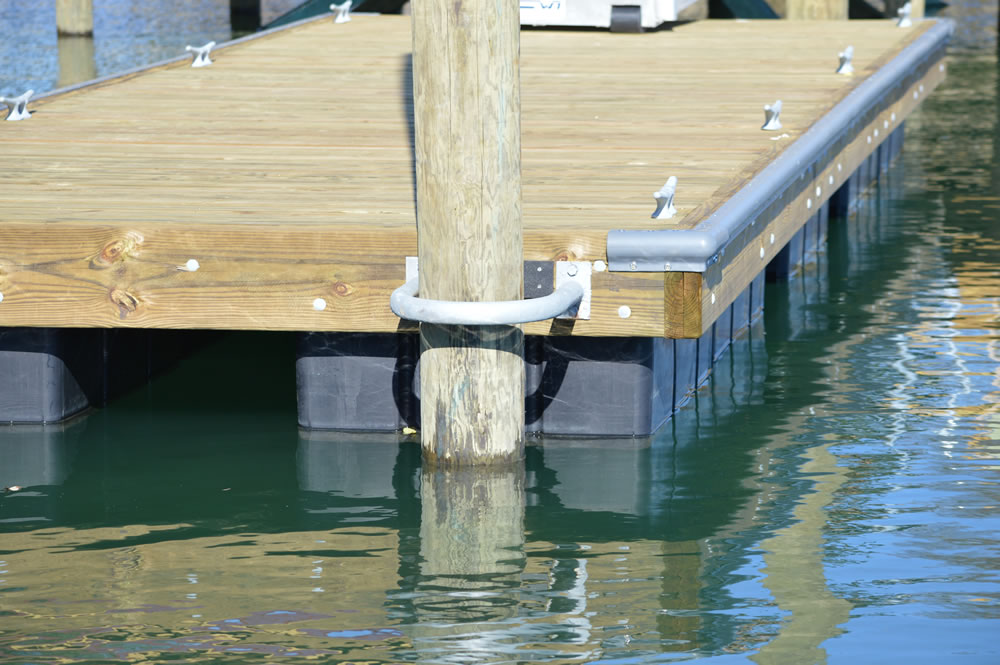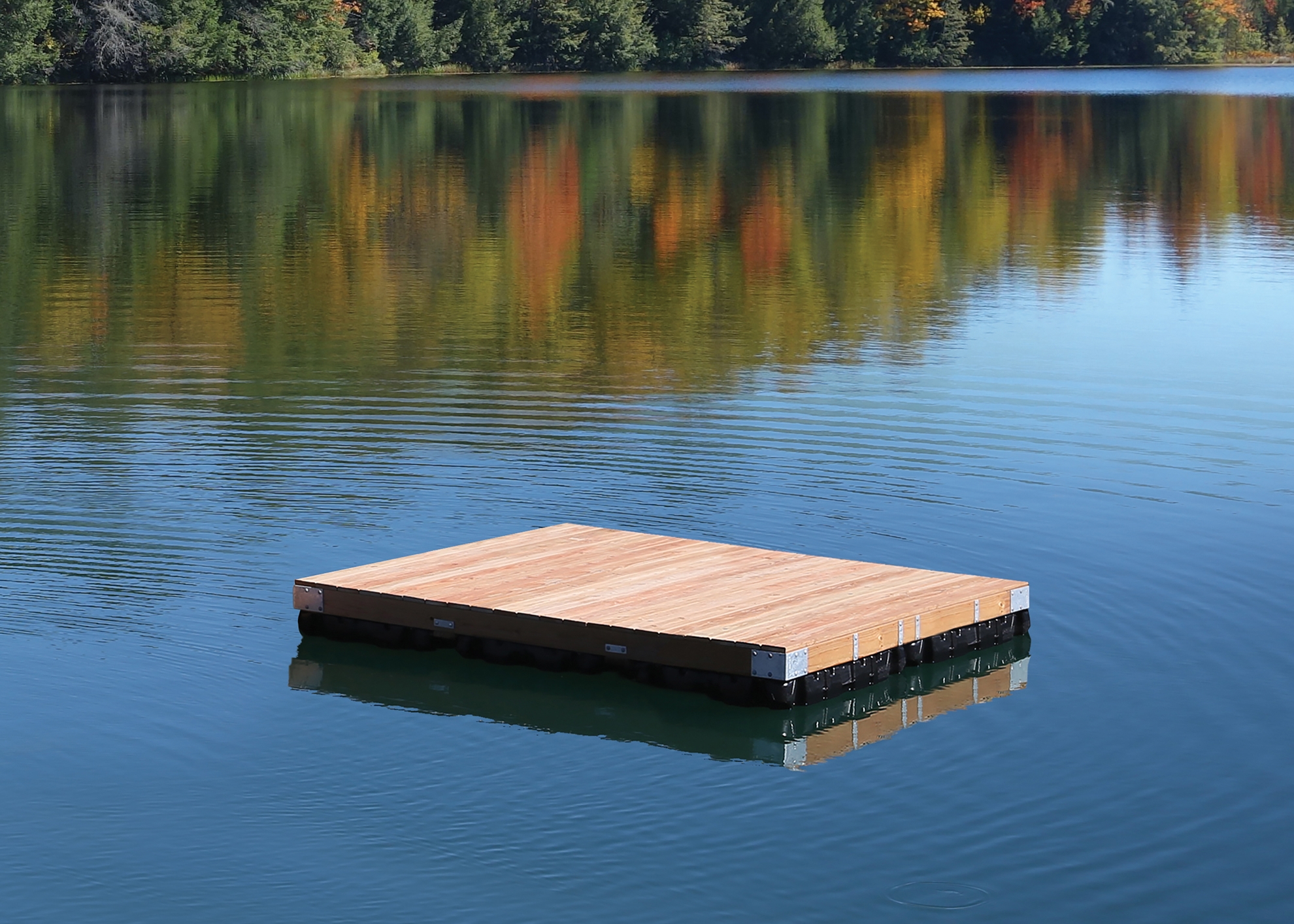Find the Perfect Floating Dock Builder to Bring Your Waterfront Vision to Life
Find the Perfect Floating Dock Builder to Bring Your Waterfront Vision to Life
Blog Article
Develop the Perfect Docking Option With Floating Docks
Floating docks existing a versatile solution for a variety of maritime requirements, adapting flawlessly to fluctuating water degrees and varied vessel kinds. As we check out the important components that add to the performance of floating docks, numerous vital factors regarding security and upkeep will arise, increasing concerns concerning just how to maximize your docking experience.

Benefits of Floating Docks
Floating docks deal various advantages that make them a perfect choice for numerous maritime applications. Unlike fixed docks, floating docks increase and autumn with the tide, guaranteeing constant access for vessels.
In addition, floating docks are normally less complicated and quicker to mount contrasted to standard set structures. Their modular layout enables straightforward assembly and disassembly, facilitating maintenance and moving when necessary. This versatility is specifically valuable for short-term applications or in environments where conditions may change.
Floating docks also tend to be a lot more eco friendly, as they reduce disturbance to the seabed and bordering water ecosystems. Their resilient nature lowers the threat of damages to marine life, advertising a healthier setting. These docks can be personalized to suit various vessel dimensions, making sure that they meet specific operational needs.
Inevitably, the combination of adaptability, convenience of installment, and ecological factors to consider makes floating docks an extremely effective solution for a wide variety of maritime requirements.
Choosing the Right Products
Choosing the appropriate materials for floating docks is vital to make sure stability, longevity, and durability. The selection of products straight influences the dock's efficiency in numerous environmental problems, including direct exposure to water, sunshine, and potential wear from marine web traffic.
Typical products used for floating docks include light weight aluminum, wood, and high-density polyethylene (HDPE) Aluminum is light-weight, corrosion-resistant, and calls for marginal maintenance, making it a superb selection for durability. Nevertheless, its first cost can be higher contrasted to other materials.
Timber, while visually enticing and offering a standard look, can be vulnerable to rot and bug damage if not effectively dealt with. Utilizing pressure-treated timber or naturally durable species like cedar or redwood can reduce these concerns.
HDPE is a prominent choice as a result of its resistance to UV rays and chemicals, in addition to being eco pleasant. floating docks. It is lightweight and readily available in various shades, enabling customization
Inevitably, the appropriate material choice will rely on certain demands, consisting of budget, desired visual appeals, and ecological factors to consider. Mindful examination of these variables will certainly lead to a resistant and effective floating dock solution.
Layout Considerations for Stability
When creating floating docks, making certain security is an essential facet that can substantially impact their functionality and safety and security. Stability in floating dock layout is influenced by various factors, including buoyancy, weight distribution, and the arrangement of parts. An ideal buoyancy system need to use materials that provide enough lift while decreasing weight. This equilibrium makes certain that the dock stays above water, also under varying tons.
Weight circulation is critical; uniformly dispersing tons throughout the dock protects against tilting and enhances stability. This can be attained Go Here through critical placement of docking devices, such as cleats and fenders, along with appropriate spacing of drifts. In addition, the dimensions of the dock need to be thoughtfully prepared. Wider designs can offer boosted security, especially in rough water conditions, while longer docks might require extra supports to prevent sagging.
An additional crucial consideration is the environmental influence, consisting of wave activity and wind. Incorporating features such as sidewalls or skirting can aid minimize the results of environmental pressures, preserving stability in damaging conditions. Inevitably, a combination of thoughtful style, material choice, and understanding of environmental factors will produce a floating dock that satisfies both security and safety and check my site security demands.
Setup Tips and Techniques

Following, safeguard the required licenses and follow local policies, which may determine installation methods and environmental considerations. If required, involve a qualified professional experienced in floating dock installations. Usage top notch materials designed for marine settings to improve longevity and durability.
When positioning the dock, straighten it identical to the coastline to promote simple access. Guarantee that the anchoring system is robust, employing cinder block or helical supports to maintain the dock against wind and wave action. It's crucial to represent seasonal water level changes, including prospective ice motion in colder climates.
Throughout the installment, ascertain the dock's floatation and stability prior to finalizing the anchoring. Routinely evaluate the setup for any type of indicators of wear or damages. By following these techniques and pointers, you can accomplish a secure, functional, and visually pleasing floating dock installment that fulfills your needs.
Upkeep and Treatment Guidelines
Caring and preserving for floating docks is critical to lengthening their life-span and ensuring risk-free usage. Routine evaluations need to be carried out to determine any type of indicators of wear, damages, or marine development. Look for fractures, loosened installations, or tarnished locations on the dock's surface, as these concerns can endanger structural stability.
Cleaning is necessary. Make use of a pressure washing machine to eliminate algae, barnacles, and particles, which can accumulate in time. For persistent development, take into consideration eco-friendly cleaning agents that will not hurt marine life.
In addition, check the mooring lines and anchors frequently to ensure they are totally free and secure from rust. Change any frayed or damaged lines promptly to keep stability.
Throughout extreme weather, such as storms or freezing problems, take preventive steps. Protect the dock with additional mooring lines and, if possible, remove any type of removable parts to stop damages.
Final Thought
Finally, the implementation of floating docks offers a reliable and functional docking service ideal for various maritime applications. Their flexibility to rising and fall water levels, integrated with a modular style, enables very easy modification and moving. Selecting ideal products improves both toughness and visual allure, while cautious factor click to read more to consider of stability makes sure safety and long life. With correct installment and normal upkeep, floating docks can offer reliable and effective docking experiences for a wide variety of vessels.
As we explore the crucial elements that contribute to the effectiveness of floating docks, a number of essential factors relating to security and upkeep will emerge, elevating inquiries regarding exactly how to optimize your docking experience. Unlike taken care of docks, floating docks increase and loss with the trend, ensuring consistent availability for vessels.When developing floating docks, ensuring security is a fundamental facet that can substantially affect their performance and safety and security. Stability in floating dock design is influenced by different aspects, including buoyancy, weight circulation, and the plan of parts. Eventually, a mix of thoughtful layout, product option, and understanding of ecological factors will produce a floating dock that fulfills both stability and safety and security requirements.
Report this page